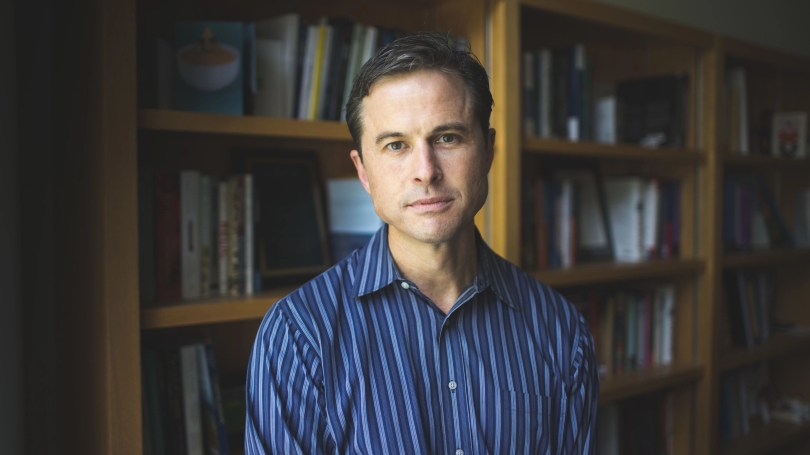
- About
- Departments & Programs
- Faculty Resources
- Governance
- Diversity
- News
Back to Top Nav
Back to Top Nav
Back to Top Nav
Back to Top Nav
New research by government professor Brendan Nyhan shows that the relationship between education and antisemitism varies across countries.
As antisemitic incidents around the world increase at a rate unseen since World War II, a new study underscores the need for political systems to promote tolerance.
The study was published this month in Research & Politics by lead author and James O. Freedman Presidential Professor Brendan Nyhan, with Shun Yamaya of Stanford University and Thomas Zeitzoff of American University.
The researchers analyzed data collected between 2013 and 2017 in more than 100 countries as part of the Anti-Defamation League's ADL Global 100—the largest survey to date measuring individual-level attitudes toward Jews and endorsement of antisemitic stereotypes and conspiracy theories.
The ADL, which in 2019 named Nyhan a Belfer Fellow in support of his work researching and promoting awareness of online hate and digital citizenship, "generously agreed to provide us with access to the data from the surveys they had conducted around the world," Nyhan says.
The researchers examined whether each country sponsored a UN resolution in 2007 that condemned Holocaust denial and joined a statement made at the UN in 2015 condemning antisemitism. The authors use these actions as proxies for country-level opposition to antisemitism in education and politics.
In their analysis, the researchers found that the relationship between education and endorsement of antisemitic stereotypes varied between countries. In countries that declined to endorse the U.N. statements, educated respondents were more likely to endorse antisemitic stereotypes. This trend was observed most clearly in Eastern Europe, the Middle East, and North Africa. For countries whose elites supported one or both of the U.N. statements, education level was associated with greater favorability toward Jews.
"It's easy to convince ourselves that more education is always better, but I was reminded that it can also make people more aware of and adherent to whatever views are prevalent in the context in which they live," Nyhan says. "That doesn't mean we shouldn't seek to provide everyone with a good education, of course, but it does highlight the need to promote tolerance in places where prejudice against certain groups may be more common. As we say in the article, education is not a panacea."
A renowned researcher of misinformation and conspiracy theories in the U.S., Nyhan expanded his scope in recent years to countries around the world. Two previous articles with Zeitzoff focus on conspiracy and misperception belief in the Middle East and North Africa and historical misperceptions among Jewish Israelis.
"Studying belief in antisemitic conspiracies and stereotypes globally was a natural extension of that work," Nyhan says.
As a next step, the authors suggest that more research is needed on how elites and education foment or reduce antisemitism.
"We need new approaches that allow us to directly estimate the causal effects of education on antisemitism," Nyhan says. "Our design only allows us to show that the association between education and antisemitism varies between countries."
With expressions of antisemitism rising in the U.S. and Europe, Nyhan says it's essential for elites and educators to reject all forms of intolerance, especially right now.
"The messages that are sent to people on these issues can have far-reaching repercussions," he says.